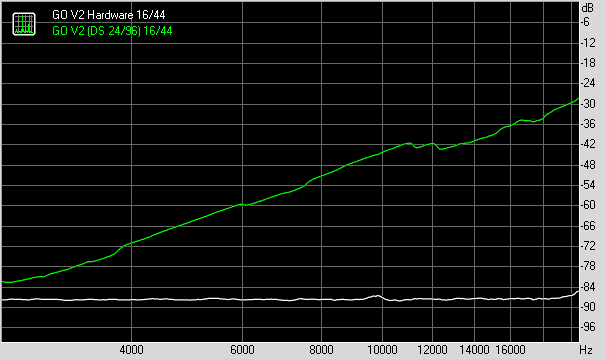solderdude
Grand Contributor
@Thomas savage great avatar !
What output mode are you using, and on what os version?Yes. I did the same test the other day, same conclusions.
No different than Windows which does things similar. Using a number of players it is simple in the extreme to configure Linux for bit perfect playback.While it's certainly possible to configure that way, the defaults for most linux systems don't do that. They usually use some combination of ALSA's 'dmix' and 'plug' plugins and PulseAudio to convert to a sample rate and sample format that the sound device supports, and allow multiple applications to play sound at the same time.
Using a simple Linux system the player (mpd in my case) sends that bytes to ALSA and they go out via the USB. Nothing else is involved and nothing can sound different.
(Oh no that bolding thing is contagious)
I use equalizerAPO so I could care less about bitperfectWhat's the point of bitperfect playback anyway? Except treating paranoia of lusers, of course. Resampling can be done transparently with very little CPU, these days.
This irked me the most:I am not an expert in Windows audio (I got rid of it many years ago ...) as I was never sure the Windows mixer, interpolation, upsamplig etc. were out of the equation ...
Archimago' measurements on Windows 10 upsamplig:
http://archimago.blogspot.com/2015/11/measurements-windows-10-audio-stack.html

@Thomas savage great avatar !
Looks a lot like the totaldac output!!I am not an expert in Windows audio (I got rid of it many years ago ...) as I was never sure the Windows mixer, interpolation, upsamplig etc. were out of the equation ...
Archimago' measurements on Windows 10 upsamplig:
http://archimago.blogspot.com/2015/11/measurements-windows-10-audio-stack.html
But wow... Isn't that cool?! Imagine you saw that exact Windows 10 impulse response printed in the pages of a glossy audiophile magazine for a US$15,000 DAC. I suspect many would be impressed, right? After all, no pre- or post-ringing! (May I suggest someone have a look at the quality of anti-aliasing and frequency response with the emm Labs DAC2X
I was using WASAPI, probably the one that supports DSD. But foobar2000 only uses 32bit floating point format internally, so not enough for 32 bit integers (once you get rid of the exponent part). So this behavior is expected, it's a limitation, not a bug. The only time I ever saw the RME pass the 32 bit test was with JRiver.What output mode are you using, and on what os version?
Have you reported this to the Devs?
I was using WASAPI, probably the one that supports DSD. ...